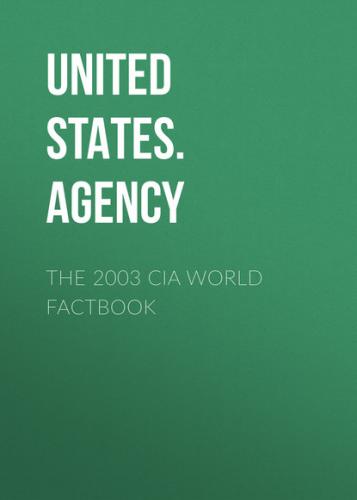Fiscal year:
calendar year; note - previously was 1 April - 31 March, but
starting with 2001, has been changed to calendar year
Communications Indonesia
Telephones - main lines in use:
5,588,310 (1998)
Telephones - mobile cellular:
1.07 million (1998)
Telephone system:
general assessment: domestic service fair, international service
good
domestic: interisland microwave system and HF radio police net;
domestic satellite communications system
international: satellite earth stations - 2 Intelsat (1 Indian Ocean
and 1 Pacific Ocean)
Radio broadcast stations:
AM 678, FM 43, shortwave 82 (1998)
Radios:
31.5 million (1997)
Television broadcast stations:
41 (1999)
Televisions:
13.75 million (1997)
Internet country code:
.id
Internet Service Providers (ISPs):
24 (2000)
Internet users:
4.4 million (2002)
Transportation Indonesia
Railways:
total: 6,458 km
narrow gauge: 5,961 km 1.067-m gauge (125 km electrified); 497 km
0.750-m gauge (2002)
Highways:
total: 342,700 km
paved: 158,670 km
unpaved: 184,030 km (1999 est.)
Waterways:
21,579 km total
note: Sumatra 5,471 km, Java and Madura 820 km, Kalimantan 10,460
km, Sulawesi (Celebes) 241 km, Irian Jaya 4,587 km
Pipelines:
condensate 672 km; condensate/gas 125 km; gas 8,183 km; oil 7,429
km; oil/gas/water 66 km; refined products 1,329 km; water 72 km
(2003)
Ports and harbors:
Cilacap, Cirebon, Jakarta, Kupang, Makassar, Palembang, Semarang,
Surabaya
Merchant marine:
total: 710 ships (1,000 GRT or over) 3,045,673 GRT/4,106,508 DWT
note: includes some foreign-owned ships registered here as a flag of
convenience: Greece 1, Hong Kong 2, India 1, Japan 2, Malaysia 1,
Monaco 3, Panama 1, Philippines 1, Singapore 11, South Korea 1,
Switzerland 1, UK 2, US 1 (2002 est.)
ships by type: bulk 42, cargo 400, chemical tanker 15, container 56,
liquefied gas 3, livestock carrier 1, passenger 9, passenger/cargo
13, petroleum tanker 127, refrigerated cargo 2, roll on/roll off 16,
short-sea passenger 9, specialized tanker 11, vehicle carrier 6
Airports:
631 (2002)
Airports - with paved runways: total: 153 over 3,047 m: 4 2,438 to 3,047 m: 12 914 to 1,523 m: 48 under 914 m: 43 (2002) 1,524 to 2,437 m: 46
Airports - with unpaved runways: total: 478 1,524 to 2,437 m: 3 914 to 1,523 m: 25 under 914 m: 450 (2002)
Heliports: 9 (2002)
Military Indonesia
Military branches:
Army, Navy (including marines and naval air arm), Air Force
Military manpower - military age:
18 years of age (2003 est.)
Military manpower - availability:
males age 15–49: 65,665,721 (2003 est.)
Military manpower - fit for military service:
males age 15–49: 38,290,550 (2003 est.)
Military manpower - reaching military age annually:
males: 2,213,727 (2003 est.)
Military expenditures - dollar figure:
$1 billion (FY98)
Military expenditures - percent of GDP:
1.3% (FY98)
Transnational Issues Indonesia
Disputes - international:
East Timor-Indonesia Boundary Committee continues to meet regularly
to survey and delimit land boundary; East Timor refugees delay
return from camps in Indonesia; maritime delimitations with
Australia and East Timor await further discussions; ICJ awarded
Sipadan and Ligitan islands to Malaysia in 2002; Indonesian
secessionists, squatters and illegal migrants create repatriation
problems for Papua New Guinea
Illicit drugs:
illicit producer of cannabis largely for domestic use; possible
growing role as transshipment point for Golden Triangle heroin
This page was last updated on 18 December, 2003
======================================================================
@Iran
Introduction Iran
Background:
Known as Persia until 1935, Iran became an Islamic republic in 1979
after the ruling shah was forced into exile. Conservative clerical
forces established a theocratic system of government with ultimate
political authority vested in a learned religious scholar. A group
of Iranian students seized the US Embassy in Tehran on 4 November
1979 and held it until 20 January 1981. During 1980–88, Iran fought
a bloody, indecisive war with Iraq over disputed territory. Over the
past decade, popular dissatisfaction with the government, driven by
demographic changes, restrictive social policies, and poor economic
conditions, has created a powerful and enduring pressure for
political reform.
Geography Iran
Location:
Middle East, bordering the Gulf of Oman, the Persian Gulf, and the
Caspian Sea, between Iraq and Pakistan
Geographic coordinates:
32 00 N, 53 00 E
Map references:
Middle East
Area:
total: 1.648 million sq km
land: 1.636 million sq km
water: 12,000 sq km
Area - comparative:
slightly larger than Alaska
Land
